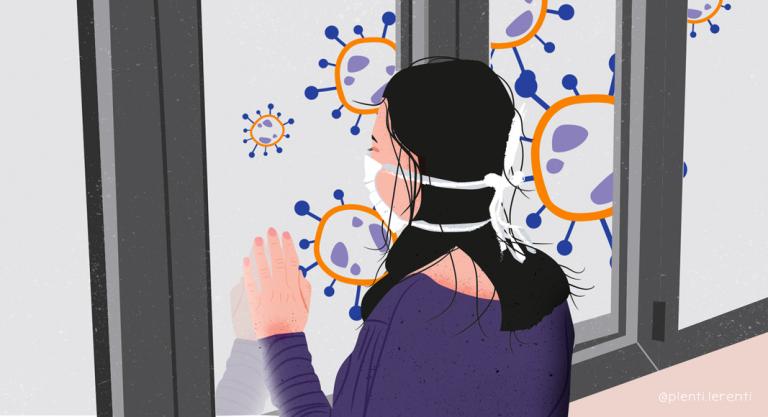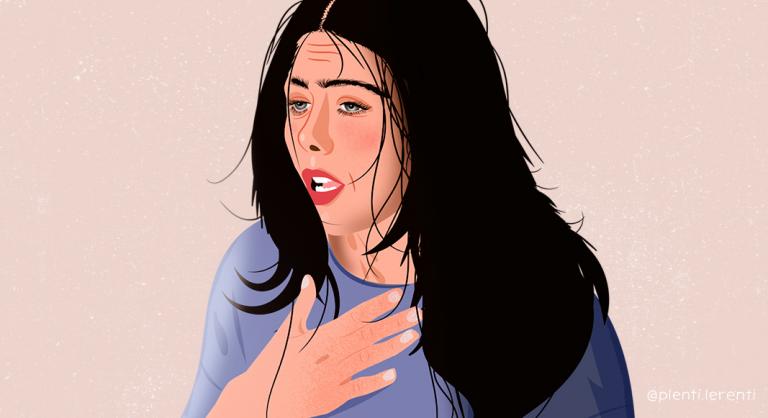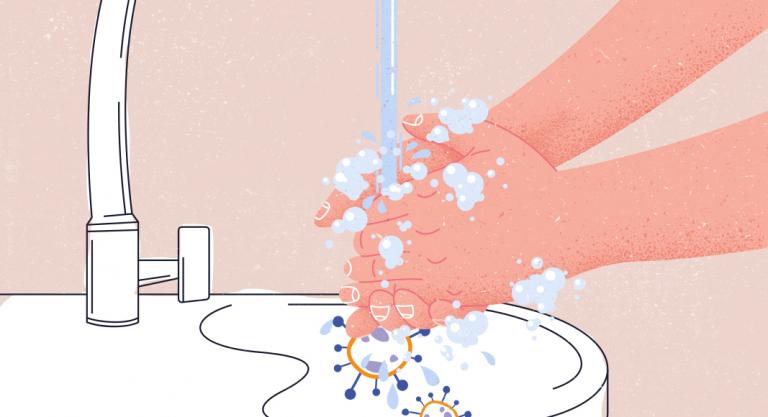Almost two years ago the World Health Organization (WHO) declared the global pandemic by COVID-19 and since then there have been successive waves of contagion (in Spain we are on the sixth) that have been accompanied by measures to try to stop the spread of the SARS-CoV-2 coronavirus, from rigorous confinement, to wearing a mask outdoors again, presenting the COVID certificate when traveling or entering certain premises, or the mandatory vaccination that some countries have decided to impose on certain groups of the population.
In a situation of such a prolonged health crisis that affects all areas of life (economic, work, family, social, leisure…) it is not surprising that emotional, psychological and psychiatric problems have increased and have been coined new terms to name some of these disorders, such as pandemic fatigue –tiredness and dissatisfaction from having to live with so many restrictions, and physical symptoms such as headaches or sleep disturbances– or the one that concerns us in this article: coronaphobia, which in a few words would be a pathological fear of contracting coronavirus infection.
What is coronaphobia and why does it occur?
But what do the experts say about this situation? “Coronaphobia can be defined as the appearance of intense, immediate and disproportionate fear or anxiety in the face of specific objects or situations that in general would not be considered dangerous, and that the person also actively tries to avoid or resist. In this specific case, we would be talking about the stimulus that generates that fear would be any circumstance related to the pandemic, with COVID-19”, explains Arantxa Duque Moreno, Doctor in neurosciences and professor and researcher at the International University of Valencia (VIU ).
“Coronaphobia would include characteristics of hypochondriasis or anxiety disorder, which would basically be an excessive worry about having or contracting a disease”
There are other phobias that are also related to the stressful life events that we have had to live through, such as agoraphobia or social phobia, but according to the expert these “can be related more directly to the experience of confinement, of isolation, while that coronaphobia could be more associated with contagion itself.”
“Phobias develop from an atrocious fear, or a chronic feeling of threat, a traumatic experience, which is what this epidemic is being for many people,” explains Laura Rojas-Marcos, a graduate in Psychology from the University of New York and a Master’s degree in Psychology from the Albert Einstein University of Yeshiva, and the author of several books, including Living together and sharing. Keys to healthy relationships with others and with yourself. According to the psychologist, the fact of having a traumatic experience does not mean that we are going to develop a phobia, but some people have it and it manifests itself in the form of “feelings of panic and an atrocious fear of the virus, which is intensified because it is something that is not we can see and that is associated with death”.
The psychologist affirms that although we already know what helps us to protect ourselves, such as the mask, distance and hygiene, these people are in a state of emotional hypervigilance and constant alert to the possibility of becoming infected, and that leads them to take refuge and reject any type of contact to avoid becoming infected or infecting another person. “We are not talking, for example, about a phobia of flying, which is a specific phobia, but that the coronavirus can be everywhere: in the people we love, in things, in the air we breathe… Therefore, to Despite the fact that vaccination has been shown to help, and it is of course something necessary and preventive, we are not free from contagion, nor even from the fact that things could be complicated, and these people suffer enormously.

There are also a series of personality or environmental characteristics that can make us more prone to developing this phobia, or any mental disorder, according to the VIU neuroscience specialist, who points out that there must be a certain vulnerability that is above all linked to certain risk factors, which in the case of coronaphobia would be the following:
What are the symptoms of coronaphobia
A series of signs, symptoms or changes in our personality, in our interests or in our way of relating to others, can make us suspect that we have developed coronaphobia. Basilio Blanco Núñez, General Health Psychologist and teacher and researcher at the International University of Valencia, indicates which are the main ones:
“Of course – details the psychologist – this symptomatology would have to be associated with the pandemic. For example, sleeping problems appear after the start of the pandemic, or hopelessness in the face of future problems that would be specifically linked to the pandemic.

“On the other hand –adds Arantxa Duque Moreno–, we must not forget that the disorders are not pure and can share certain symptoms between them. Thus, for example, we could say that coronaphobia would include characteristics of hypochondriasis or, as it is known from the Diagnostic and Statistical Manual of Mental Disorders, illness anxiety disorder, which would basically be an excessive worry about having or contracting a disease. .
“The duration of the pandemic and other measures that are maintained, such as wearing a mask or limitations on leisure, are associated with other types of disorders. Among them, pandemic fatigue stands out, a picture made up of physiological symptoms, such as hormonal changes, emotional symptoms such as low mood, cognitive symptoms – thinking that we will never get out of this situation – and behavioral symptoms such as alterations in the sleep, associated with long-term exposure to the COVID-19 pandemic,” says the psychologist.
“People with coronaphobia are in a state of emotional hypervigilance and constant alertness to the possibility of becoming infected, which leads them to reject any type of contact”
“Pandemic fatigue -points out Laura Rojas-Marcos- is what we are all feeling: emotional exhaustion, tiredness, saturation, irritation, and I think that no one in the world is free from that feeling of emotional exhaustion, and even physical, because of the tension and stress produced by this situation that has been going on for two years. We are talking about a long time and chronic stress leaves its mark. We all, in one way or another, suffer from that anxiety associated with constant uncertainty and not knowing how to respond in occasions to sudden changes from one day to the next.
Tips to avoid or solve coronaphobia
The key to preventing coronaphobia is to avoid the fear generated by the spread of the virus that triggers COVID-19, indicates Dr. Duque Moreno, who offers us some tips that would be useful for this, such as:

Cognitive-behavioral therapy to treat coronaphobia
As for what we can do to treat coronaphobia if we verify that this disorder has been established and interferes with our daily lives, the VIU researcher assures us that “as with any other type of phobia, the scientific evidence available to date indicates that cognitive-behavioral therapies are the treatment of choice with the greatest clinical efficacy”.
And he explains that the treatment consists of the application of various types of techniques that focus on eliminating the discomfort associated with the phobia. More specifically, exposure techniques are the most frequently used in clinical psychology, and then it will depend a lot on different factors, including the phobic object or situation that causes us fear, and also on the person himself. Those factors are going to affect the type of exposure that is applied.”
However, it also warns that since coronaphobia is an incipient disorder that is not even catalogued, nor included as a disorder within the diagnostic and statistical manual of mental disorders, it is necessary to carry out studies that allow assessing which would be the most appropriate treatment of choice in each case.
.















